Hegels Phenomenology of Spirit
Hegels Phenomenology of Spirit
A Critical Rethinking in
Seventeen Lectures
Richard Dien Winfield
ROWMAN & LITTLEFIELD PUBLISHERS, INC.
Lanham Boulder New York Toronto Plymouth, UK
Published by Rowman & Littlefield Publishers, Inc.
A wholly owned subsidiary of The Rowman & Littlefield Publishing Group, Inc.
4501 Forbes Boulevard, Suite 200, Lanham, Maryland 20706
www.rowman.com
10 Thornbury Road, Plymouth PL6 7PP, United Kingdom
Copyright 2013 by Rowman & Littlefield Publishers, Inc.
All rights reserved. No part of this book may be reproduced in any form or by any electronic or mechanical means, including information storage and retrieval systems, without written permission from the publisher, except by a reviewer who may quote passages in a review.
British Library Cataloguing in Publication Information Available
Library of Congress Cataloging-in-Publication Data Available
ISBN 978-1-4422-2337-0 (cloth : alk. paper)ISBN 978-1-4422-2338-7 (electronic)
 TM The paper used in this publication meets the minimum requirements of American National Standard for Information Sciences Permanence of Paper for Printed Library Materials, ANSI/NISO Z39.48-1992.
TM The paper used in this publication meets the minimum requirements of American National Standard for Information Sciences Permanence of Paper for Printed Library Materials, ANSI/NISO Z39.48-1992.
Printed in the United States of America
For Robert Bruce Berman
Preface
The following work rests on the shoulders of two individuals, who have paved the way for a proper understanding of Hegels most misunderstood masterpiece, ThePhenomenologyofSpirit. Back in my second philosophy course during my sophomore year at Yale, Kenley Royce Dove introduced me to the revolutionary project of Hegels work, laying out its due and indispensable role as the introduction to foundation free systematic philosophy. Much more recently, conversations with Robert Bruce Berman and readings of drafts of his book on ThePhenomenologyofSpirit have provided me with an outline understanding of how the whole argument of the work must unfold. I have here attempted to fill out the details and confirm to what extent ThePhenomenologyofSpirit succeeds in bringing us to the threshold of doing philosophy without foundations.
The text at hand is based upon the lectures I gave in my 2011 spring term graduate seminar on Hegels PhenomenologyofSpirit at the University of Georgia. I want to thank Graham Schuster for recording the class sessions and making the recordings available and Samuel Abney for transcribing those recordings.
Chapter Lecture 1
Introduction
Part 1
Does philosophy need an introduction? It has become almost a natural assumption in modern times that before one can truly think what is, one first must investigate knowing and certify its authority.
This assumption has issued from an understandable skepticism of all attempts to know immediately what is true, to read off directly the content of what is in its own right, or, in other words, to do ontology as first philosophy and make absolute claims about objects. Whenever such claims are made, it is always possible to question the validity of the knowing that is employed and the appropriateness of any content that is affirmed. Thus it seems inevitable that one first has to investigate knowing and authenticate its own claims before one can determine the truth about any object.
This preliminary undertaking has come to be widely pursued starting with early modern philosophy, many of whose classic representatives, such as Descartes and the Empiricists, focus on beginning philosophical inquiry by reflecting upon the I, human understanding, or consciousness in general. This common strategy comes to a head with Kant, who regards what he is doing as inaugurating a genuinely critical philosophy avoiding the dogmatic appeal to the given undermining all prior ventures of philosophy. The Kantian so-called transcendental turn involves supplanting ontology as first philosophy and substituting epistemology as the necessary introduction to any legitimate philosophical system. That seminal move of making epistemology foundational for philosophy has been embraced by most philosophers since Kant.
The knowing put under scrutiny by such foundational epistemology may be variously characterized. It may be depicted in terms of consciousness, linguistic practice, or any sort of cultural convention held to condition knowing. However knowing gets construed, it is held to be the preliminary topic of investigation and what is knowable is held to be determined by the character of knowing.
The assumption that one must first investigate knowing before knowing what is rests on certain presuppositions of its own. Primary among these is the assumption that knowing and its object are different from one another and independently determined.
The presumption that knowing always addresses something it confronts, something that has an independent otherness, is built into the very possibility of doing foundational epistemology, of investigating cognition before attempting to address what is. To be able to examine knowing without making claims about objects of knowledge, what knowing is must be separate and distinct from objects of knowledge. The very difference between knowing and its object has to be taken for granted if one is to be able to investigate knowing without making claims about objects and to do so prior to cognizing objects. Otherwise epistemological claims are no less ontological, undercutting the driving impetus of the critical turn.
Consequently, the whole move to make epistemology primary itself presupposes a fundamental opposition between knowing and its object. If one considers that assumed opposition, however, one readily finds that it renders knowing impossible. This is true whether knowing attempts to bridge the opposition and obtain knowledge of its object by functioning as an active instrument or as a passive medium.
Given the assumed opposition of knowing and its object, cognition might seem only able to get at what is other than itself by taking some active role, by doing something to what it is trying to know. In other words, knowing might figure as an instrument that comes to its object and acts upon it so as to bring it into purview and grasp what it is. If, however, knowing is an instrument that acts upon its object, what its activity furnishes is not the object as it is in its own right. What knowing as instrument gives itself is instead the object as it has been acted upon by knowing, the object as it has been altered by the activity of knowing.
To escape this difficulty, the knowing that stands over and against its object might try to comprehend that object not by acting upon it, but by somehow bringing the object to itself through a passive receptivity, by being a medium through which the object comes to be known. Here again, however, success seems precluded. If knowing is a medium through which the object in some way transmits itself, what is obtained is not the object as it is apart from its transmission through the medium but rather the object as it is refracted through the medium.
If we seek to counteract what knowing does to its object as either an active instrument or a passive medium by subtracting the effect of the activity or receptivity of knowing, we just end up where we started. After all, if we subtract the activity of knowing from its object, we are left with the object as something we confront, but do not yet know. Similarly, if we subtract the refraction of the medium, we are left opposing an object that has yet to be transmitted to our cognition. In either case, knowing that stands in opposition to an independently determined object proves to be untenable. This result is of fatal significance for foundational epistemology to the degree that the latter rests upon the assumption that knowing is distinct from its object, an assumption that renders cognition unworkable, whether it functions actively or passively.
Next page
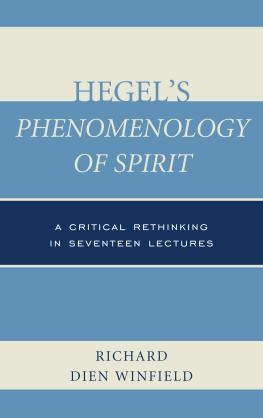
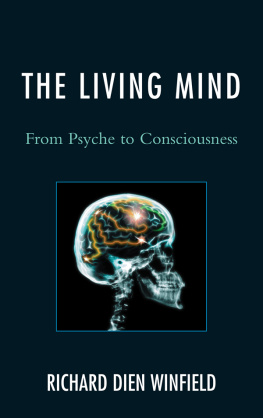
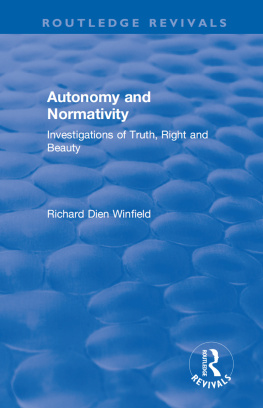

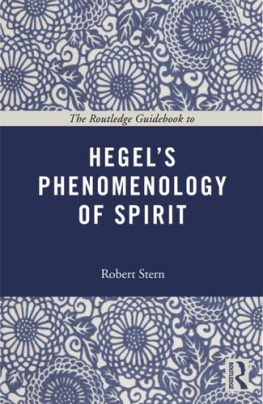
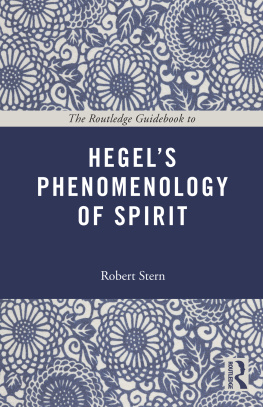
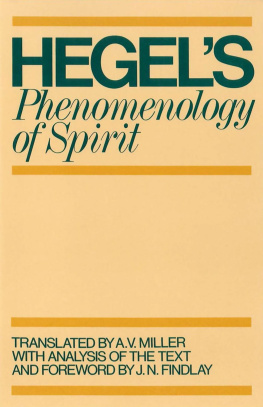
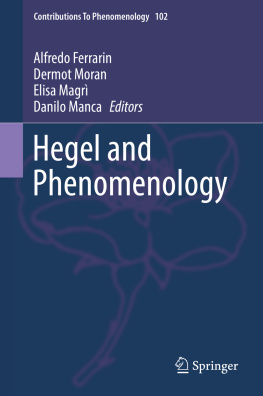
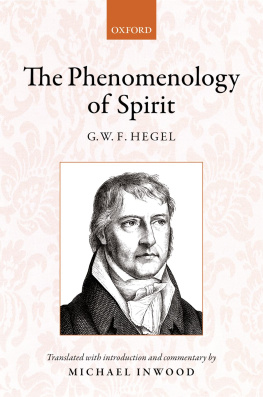
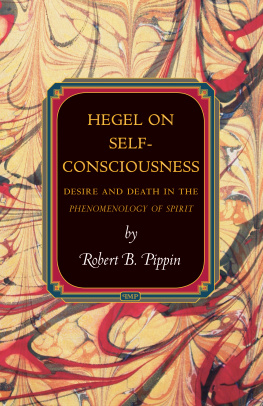

 TM The paper used in this publication meets the minimum requirements of American National Standard for Information Sciences Permanence of Paper for Printed Library Materials, ANSI/NISO Z39.48-1992.
TM The paper used in this publication meets the minimum requirements of American National Standard for Information Sciences Permanence of Paper for Printed Library Materials, ANSI/NISO Z39.48-1992.